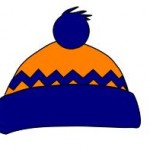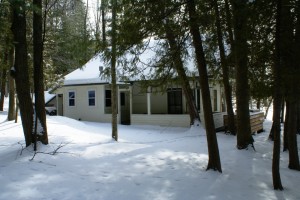Third chemo yesterday. My oncologist was a bit late for our appointment (There’s always a pre-chemo exam). He’d been at the hospital and was obviously frustrated after talking with a patient. He didn’t give particulars, but said something like this: heart disease is the #1 killer, cancer is #2. Even though heart disease has as many variables and is as much a mystery, somehow people assume the doctor is working in their best interest with heart disease, that a stent, certain medications, are appropriate. Yet with cancer, everyone has a different tangent, an anecdotal cure, they think may be better than what the doctor has in mind. Not that he discourages supplements, herbals, acupuncture, etc., but it’s the attitude I could tell he was responding to.  It does seem that cancer feels more out-of-control to us. My many years of meditation training have made it quite clear to me that my very being is “out of control” in an ultimate sense. I can’t dictate when I’ll be born or die. About all I can do in this lifetime is encourage certain attitudes that can help lean me in a direction I want to go.
It does seem that cancer feels more out-of-control to us. My many years of meditation training have made it quite clear to me that my very being is “out of control” in an ultimate sense. I can’t dictate when I’ll be born or die. About all I can do in this lifetime is encourage certain attitudes that can help lean me in a direction I want to go. This chemo doesn’t seem to be giving me much of a grace period of feeling good before the ickys set in. And here it is, full winter. Here’s a photo of a trail near our house in winter. I’m glad to have chemo and radiation this time of year. Caps and wigs are hot. And I can wear a stocking cap now and feel like my old self when I go outside. But the dark and enclosure sometimes gets to me, no matter how diligently I follow my cheering up routines. I am not all light sabre and optimism. Sometimes I sink. Sometimes, with Keats, “On the shore / of the wide world I stand alone, and think.”But there are books. I would like to sing the praises of novels and memoirs for a change. I just finished The End of Your Life Book Club by Will Schwalbe, a publisher with a distinguished career from a prominent family of publishers and philanthropists. He chronicles the last couple of years of his mother’s life as she’s dying of pancreatic cancer. They’re both huge readers, and they talk their way through a pile of books during this time. You’d think I’d want a more cheerful book. But it did cheer me.Will’s mother, Mary Ann Schwalbe says, “When you walk around New York, or really anywhere, you see so many people like that young woman [in the book they’re reading]—not desperate, but still sad and lonely. That’s one of the amazing things great books like this do—they don’t just get you to see the world differently, they get you to look at people, the people all around you, differently.”Great books, not schlock (although some schlock may be insightful, too). I’m not thinking of books-as-moral-lessons, either. I’m thinking of people’s made-up or true stories as “acts of awareness,” as D. H. Lawrence said. Hawthorne reminded us that the “truth of the human heart” is sometimes more evident in what he called “romance” than it is right in front of our nose. We make up our lives in our minds whether we write it down or not. We live in our illusions. We are as mysterious as cancer. A book takes me deeply inside many different minds, helps me see the close details of another life, which in a real sense is my own life. We aren’t separate. We can’t get free of someone else’s suffering—or joy—by ignoring it.I’ve also just read Shantaram, by Gregory David Roberts, a huge thick book, a fictionalized account of the author’s escape from an Australian prison. He ends up in Bombay, serving as a beloved doctor in the most horrible slums. He’s thrown into a ghastly Indian jail, gets out, goes to Afganistan to fight the Russians—it’s epic in proportion. I liked holding the book, bought by a friend in India: cheap paper, sometimes the print slanted on the page, bleeding through or too light.I’m now reading The Emperor of All Maladies: A Biography of Cancer, by Siddhartha Mukherjee. I’m not terribly interested in the clinical, physiological aspects of cancer—I only want to learn enough about that to help with my recovery. I’m more interested in how people have responded over the ages to cancer, the psychology of the research.And of course as always I have a stack of poetry books I’m plowing through, each one a different angle of the mirror, each a beating heart—mine and its, combined.When I feel down: first I sit with it, looking into the quality of my mind/body. I drop the label “down,” entirely. What is there, exactly? It is what it is. Nothing to panic about. (There’s 2500 years-worth of what to say, here, about how this works, its purpose, its affinities with what’s typically called prayer, etc.) And I get together with friends. This helps a great deal. And I read. My intention is not to “get lost” so much as it is to see more, from different angles. And Jerry and I have just finished our marathon watch of season 2 of Downton Abby. Finally, finally, Mary and Matthew are together! That brought tears of joy to my eyes, no joke. There is as much subtlety and good writing in this series as in a great Victorian novel. Plus good acting.
This chemo doesn’t seem to be giving me much of a grace period of feeling good before the ickys set in. And here it is, full winter. Here’s a photo of a trail near our house in winter. I’m glad to have chemo and radiation this time of year. Caps and wigs are hot. And I can wear a stocking cap now and feel like my old self when I go outside. But the dark and enclosure sometimes gets to me, no matter how diligently I follow my cheering up routines. I am not all light sabre and optimism. Sometimes I sink. Sometimes, with Keats, “On the shore / of the wide world I stand alone, and think.”But there are books. I would like to sing the praises of novels and memoirs for a change. I just finished The End of Your Life Book Club by Will Schwalbe, a publisher with a distinguished career from a prominent family of publishers and philanthropists. He chronicles the last couple of years of his mother’s life as she’s dying of pancreatic cancer. They’re both huge readers, and they talk their way through a pile of books during this time. You’d think I’d want a more cheerful book. But it did cheer me.Will’s mother, Mary Ann Schwalbe says, “When you walk around New York, or really anywhere, you see so many people like that young woman [in the book they’re reading]—not desperate, but still sad and lonely. That’s one of the amazing things great books like this do—they don’t just get you to see the world differently, they get you to look at people, the people all around you, differently.”Great books, not schlock (although some schlock may be insightful, too). I’m not thinking of books-as-moral-lessons, either. I’m thinking of people’s made-up or true stories as “acts of awareness,” as D. H. Lawrence said. Hawthorne reminded us that the “truth of the human heart” is sometimes more evident in what he called “romance” than it is right in front of our nose. We make up our lives in our minds whether we write it down or not. We live in our illusions. We are as mysterious as cancer. A book takes me deeply inside many different minds, helps me see the close details of another life, which in a real sense is my own life. We aren’t separate. We can’t get free of someone else’s suffering—or joy—by ignoring it.I’ve also just read Shantaram, by Gregory David Roberts, a huge thick book, a fictionalized account of the author’s escape from an Australian prison. He ends up in Bombay, serving as a beloved doctor in the most horrible slums. He’s thrown into a ghastly Indian jail, gets out, goes to Afganistan to fight the Russians—it’s epic in proportion. I liked holding the book, bought by a friend in India: cheap paper, sometimes the print slanted on the page, bleeding through or too light.I’m now reading The Emperor of All Maladies: A Biography of Cancer, by Siddhartha Mukherjee. I’m not terribly interested in the clinical, physiological aspects of cancer—I only want to learn enough about that to help with my recovery. I’m more interested in how people have responded over the ages to cancer, the psychology of the research.And of course as always I have a stack of poetry books I’m plowing through, each one a different angle of the mirror, each a beating heart—mine and its, combined.When I feel down: first I sit with it, looking into the quality of my mind/body. I drop the label “down,” entirely. What is there, exactly? It is what it is. Nothing to panic about. (There’s 2500 years-worth of what to say, here, about how this works, its purpose, its affinities with what’s typically called prayer, etc.) And I get together with friends. This helps a great deal. And I read. My intention is not to “get lost” so much as it is to see more, from different angles. And Jerry and I have just finished our marathon watch of season 2 of Downton Abby. Finally, finally, Mary and Matthew are together! That brought tears of joy to my eyes, no joke. There is as much subtlety and good writing in this series as in a great Victorian novel. Plus good acting. And I think of the cottage, my paddle-board stored in the garage along with the kayaks and canoe, waiting for summer. That makes me smile.
And I think of the cottage, my paddle-board stored in the garage along with the kayaks and canoe, waiting for summer. That makes me smile.
My Wobbly Bicycle, 12
in Archive
